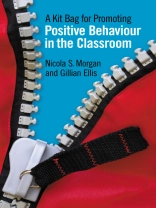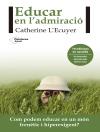Disruptive classroom behaviours can prevent effective teaching and create a negative learning environment. This handy directory of behaviours has been written by teachers for teachers, and is bursting with tried and tested techniques to make the classroom a happier and more productive place for everyone.
The ‘Kit Bag’ is a bank of up-to-date ideas that can be dipped into whenever needed, each one intended to get children focused and more engaged and excited by the learning process. The book suggests ways to create a positive learning environment in the classroom and encourages teachers to be proactive at the most vulnerable times of the school day such as at the start and end of lessons. Strategies are included for addressing behaviour hotspots, such as calling out, frequent crying or aggressive behaviour, as well as how to uncover the source of these problems and practical ways to prevent them from reoccurring. The useful Self-Assessment Checklist will also aid in making sure teachers are constructively reinforcing positive behaviour at all times.
This widely acclaimed approach will be a must for any teacher who has ever been confronted with challenging behaviour and wants to get the best out of their pupils. It will also be a valuable tool for headteachers and senior leaders who want to revolutionise current school practices.
Tabela de Conteúdo
Introduction. Part I. Creating a Positive Learning Environment. Tool 1: A Whole School Approach. Tool 2: Positive Approach. Tool 3: Effective Rules. Tool 4: Effective Correctives. Tool 5: Positive Reinforcements. Part II. Positive Classroom Management. Tool 6: Effective Routines. Tool 7: Successfully Entering the Classroom. Tool 8: Lateness. Tool 9: Successful Lessons. Tool 10: Unwanted Behaviour During Assembly. Tool 11: Leaving the Classroom without Permission. Tool 12: Going to the Toilet. Tool 13: Successfully Leaving the Classroom. Part III. Re-focusing. Tool 14: Getting their Attention. Tool 15: Lack of Motivation. Tool 16: Forgetfulness. Tool 17: Attention Seeking Behaviour. Tool 18: Calling out. Tool 19: Making Unwanted Noises. Part IV. Confidence Building. Tool 20: Lack of Self Esteem. Tool 21: Lack of Friends. Tool 22: Lying. Tool 23: Frequent Crying. Part V. Challenging Behaviour. Tool 24: Not Following Direction. Tool 25: Aggressive Behaviour. Tool 26: Spitting. Tool 27: Swearing. Resources. Bibliography.
Sobre o autor
Gillian Ellis is a headteacher of a large primary school in South Wales. She has developed a keen interest in creating a positive learning culture that will challenge and engage children through a whole school approach. She has represented local authorities through raising achievement groups, pilots and projects on behaviour management and worked with parents and family groups in creating positive partnerships with schools.












